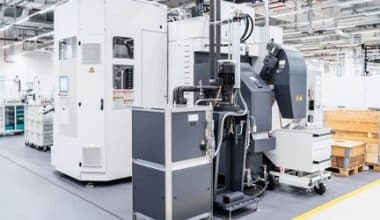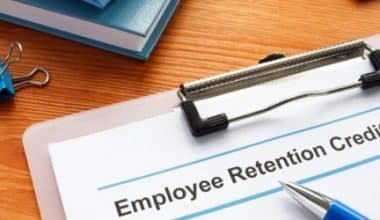With the increasing demand for retailers to bridge the gap between producers and customers, the need for retail management systems to meet these demands comes into play. Retail management systems (RMS) software like Microsoft provides a way to empower traditional retail operations while also bridging the gap between a physical shop and digital disruption. In this article, you’ll learn more about these retail management systems, including the advanced POS options.
What are Retail Management Systems?
Retail management systems (RMS) software is a collection of technology that a retailer employs to enhance the customer experience and manage daily retail operations. Retail management systems include software, hardware, telecommunications, databases, apps, and the point-of-sale (POS) platform.
Checkout activity, inventory movement, customer relationship management (CRM), e-commerce activity, and other tasks are handled by RMS programs. There are many related software system categories that branch off from the enterprise technology classification of retail management software systems. These could include:
- Inventory Control Software
- Accounting Program
- CRM Applications
- Data & Analytics Software for Merchandise Sales
- Software for E-commerce (Omnichannel)
- Business Intelligence Software
- Software for Warehouse Management and Logistics
- Employee supervision
- Retail Management and Store Technology
Some RMS solutions include separate features for tracking sales, inventories, and employee management. A single company function is managed by standalone retail management systems. Consider merging individual RMS apps for a specific retail business process if you already have a big investment in existing enterprise software. Most RMS systems are packaged as a software suite that includes a variety of RMS applications. This retail management POS will handle payments, product inventory, digital receipts, and other tasks.
The sort of RMS you require for your shop is determined by the number of stores you intend to integrate, your budget, the scale of your operation, and the IT capabilities of your infrastructure. If you run many retail outlets or are expanding your operations to include online retail, you may want complex enterprise software that is connected with various RMS programs. Some retail management POS systems manage multiple store retail operations, ecommerce, and even warehouse and logistics management. Microsoft’s RMS solution, for example, provides a unified CRM and enterprise resource planning (ERP) set of tools for end-to-end retail management technology.
Microsoft Retail Management Systems
Microsoft Dynamics 365 retail management system is a cloud-based “intelligent application” for business processes that includes:
- Sales
- Field service
- Customer Support
- Talent Management
- Operations and Finance
- Automation of Project Services
- Marketing
- Customer Insights
Retail Dynamics, according to Microsoft, is an “end-to-end retail solution” for retail channels such as brick-and-mortar stores, online retailers, and call centers. Individual business processes for each retail location can be established by small independent retailers or huge multi-chain retail organizations. This RMS offers a POS platform, a CRM platform, a unified commerce dashboard for in-store and online retail processes, store experience functions for customers (buy online, pick up in-store) and employees (scheduling and management dashboards), merchandise sales management data, and operational insight for inventory and financial management.
Retail Editions and Pricing with Microsoft Dynamics Management Systems
Microsoft Dynamics 365 is available in two editions: Enterprise and Business. Dynamics 365 Business Edition includes accounting, sales, warehouse, manufacturing, and project management. Full user access costs $40 per user per month; additional team members can access basic processes and tasks for $5 per user per month. The Enterprise edition includes full access to all Microsoft Dynamics 365 applications and is intended for retailers who need a comprehensive retail store chain management suite of applications to manage multiple stores. Prices begin at $210 per user per month, plus $8 per additional user per month. There are also solo plans available inside the Enterprise edition, ranging from $40 to $170 per user/month to begin with simply the RMS apps required for your retail business and operations. This edition includes an Operations Devices bundle, which includes shared, licensed hardware devices for your store for $75 per device/month.
Essential RMS Hardware
With mobile Windows devices for retail management systems, Microsoft Dynamics 365 for Retail “assists customers in the modern retail.” Tablets, phones, and laptops are essential for providing the enhanced in-store customer experience that key customer categories like Millennials and Gen Z shoppers have come to anticipate. Retailers can deliver customer value and enhanced in-store experiences that match the online retail experience by using mobile and web-based POS technology. Mobile devices and inventory software enable retail sales workers to conduct real-time goods searches, review and execute online orders and handle mobile payments anywhere in the shop. Microsoft Dynamics RMS supports the following important hardware devices in addition to contemporary RMS hardware:
- POS register display
- Reader for credit cards
- Cash drawer
- Display of lines
- The pin pad
- Printer for receipts
- Scanner for barcodes
- Signature collection
Dynamics for 365 has a “peripheral simulator” that allows merchants to evaluate the interoperability of hardware devices by simulating the POS client in a virtual environment. Furthermore, depending on the retailer’s business processes, “Modern POS (MPOS)” and “Cloud POS” provide numerous interfaces and implementation possibilities. Retail associates can use the MPOS anywhere in the store because it is compatible with PCs, tablets, and phones. The Cloud POS is browser-based and can be accessed with any regular web browser.
The Importance of Retail Management Systems
Technology enforces the ability to increase customer value, which is the holy grail of retailer profitability. Historically, retailers offer value by:
- Offering a wide range of products and services
- Bulk reduction
- Keeping inventory
- Offering services
Retail technology, according to Reshaping Retail, underpins retailers’ capacity to create value, develop their businesses, and operate quickly. By empowering retail management operations, RMS technology supports increased customer value and sales (for example, analyzing purchase data to gain a better understanding of the goods and services in demand). When compared to other industries, the costs of telecommunications, POS platforms, and databases used by retailers are relatively stable. This technology is useful for retail management expansion strategies that include expanding physical sites or launching e-commerce businesses. RMS technology is essential for an effective retail management strategy for an omnichannel business. The following are some of the advantages of RMS that sellers frequently mention:
- Useful customer data
- Increased point-of-sale efficiency
- Inventory and merchandise management have been improved.
- Increased financial transparency
- Enhanced security
Technology Trends and Developments in Retail Management Systems
Retail management systems now enable critical value-added services for small independent retailers to huge retail chains. Regardless of where you are in the retail hierarchy, the retailers who survive and grow realize the importance of RMS technology and keep up with digital trends and new advances in retail technology in order to provide value to the whole consumer experience. The following are trends prevalent in retail management systems:
Free and Open Source Retail Management Software
The benefits and drawbacks of open source software are a current topic in the software development community. For open source supporters, the system management and customization features for POS systems and RMS platforms are worth the extra resources (developers) and time required for deployment. One disadvantage is the upfront cost of the hardware devices required, which commercial RMS providers frequently lease to consumers. Take care not to mix up free software and open source software. There is free open source POS software available, although some free retail management software is proprietary (or hosted).
Cloud-based Retail Management System Software vs. On-Premise Retail Management System Software
If you’re buying or upgrading retail management software today, you’ll have to choose between cloud-based and on-premise systems. The choice is one of deployment, or how your retail locations will access the RMS software. Cloud-based RMS software is housed on the vendor’s off-site servers and is accessed via web browsers or applications. On-premise RMS software, on the other hand, is deployed on your own servers and hardware. The popularity of cloud-based enterprise software is growing as costs fall and companies push more cloud solutions. Furthermore, firms such as Microsoft have found a happy medium by offering a “hybrid cloud” deployment in which you can choose whether to store vital data on-premises and only choose applications that run outside servers (the “cloud”).
In general, cloud-based RMS systems are subscriptions (monthly or annual operation expenses depending on the provider) with additional fees for the number of users, training, customer support, and upgrades. Because a one-time licensing price is dependent on the number of users or the size of the firm, companies prefer to consider on-premise a higher substantial expenditure for merchants. The argument over overall cost is ongoing, however, cloud-based RMS systems are often more economical upfront due to the lack of significant infrastructure investment and support, as well as faster implementation on average.
The Indefinite Shopping Cart
With the digital revolution, the role of a retail store is changing, as is the way customers interact with a merchant. According to a survey by Salesforce and Sapient Razorfish, physical stores still account for 50% of digital commerce revenues. A seamless shopping experience across digital and physical worlds, on the other hand, is critical: shoppers want to shop and buy online (through mobile), pick up items at local stores, save in-store purchases online and track orders, and return products straight to a physical store. Traditional retailers benefit from the mix of digital retail and the demand for physical storefronts to support the shopper’s journey. Following an omnichannel strategy that caters to online sales and inventory attribution is crucial. To accomplish so, you must choose the right RMS solutions to enable the convergence of physical and digital client experiences without jeopardizing revenue.
Wireless Point-of-Sale
Poor inventory management results in poor customer service, low-profit margins, and a lack of storage space. The use of a wireless, mobile POS system enhances inventory management, boosts customer value, and allows for strategic planning. Checking physical inventory in stores is an expensive, time-consuming, and aggravating retail task, but it is critical to maintaining an accurate inventory count and structured retail operations. Using a mobile POS system lowers human error and delivers the precision needed for real-time inventory management required for omnichannel operations.
Retail Artificial Intelligence
Artificial intelligence (AI) has become a digital reality for today’s online shops. AI may fuel your website’s personalized product suggestions, targeted promotional emails, and social media adverts. 70% of shoppers polled by Salesforce and Sapient said they are more inclined to return to a retail store after receiving customized offers. Smart retailers’ digital marketing campaigns are powered by AI technology integrated with RMS solutions. Connecting a customer to the digital and physical retail experience (by attracting them online and executing in-store) is a strategy used by both top-performing omnichannel retailers and single-store independents competing for market share in a local area.
Software for Specialty Retail Management
If you are a specialty retailer, the market for RMS solutions includes software tailored to your specific needs. Restaurants and bars require specialized solutions that manage the flow of food and beverage orders, provide floor plan POS layouts, and provide personnel management reports and functionalities. Consignment boutiques, for example, necessitate sophisticated inventory management operations and accounting features tailored for customer-owned inventory and transactions involving store credit. There are specialized RMS solutions available for the following industries:
- Supermarkets
- Pharmacies
- Automotive
- Florists
Retail POS Management Systems
Retail point of sale (POS) management systems software is a user-friendly technology that assists employees and customers in completing retail transactions in physical locations (stores, showrooms, etc.).
Retailers may quickly discover product information, create sales orders, accept payments, and deliver receipts by using POS software. This allows personnel to complete more transactions in less time, while customers benefit from shorter checkout lines. POS software can also be used to educate customers about product availability, pricing, and so on. Retail managers can also use this software to monitor retail transactions and evaluate sales or inventory data such as volume, amount, or frequency. Some advanced POS solutions may also include inventory or customer profile management features.
A product must meet the following criteria to be considered for inclusion in the POS software category:
- Make information about products, inventory, pricing, or transaction history available.
- Allow clients to pay using numerous methods such as cash, credit or debit card, etc.
- Manage various types of transactions such as returns, sales cancellation, or swaps
- Provide secure data access and capability to safeguard sensitive information such as customer information and credit card numbers.
- Include reporting and analytics to track sales indications and returns or order cancellations for each location.
Top 10 Retail POS Systems
- Shopify
- Square
- Lightspeed
- Heartland Retail
- Stripe Terminal
- QuickBooks Point of Sale
- Clover
- Square for Retail
- NCR POS
- Heartland pcAmerica
Which Is The Best POS Software For Retail?
The best POS software is Square for Retail, followed by Shopify POS.
Advanced Retail Management Systems
Advanced Retail Management Systems, with headquarters in Henderson, Nevada, USA, offers retail jewelers software solutions for POS, inventory, and financial management.
Alternatives to Advanced Retail Management Systems include Definitive Synergy, Orion Law Management Systems, and Jewelry Computer Systems.
What Is the Importance Of Retail Management Systems?
Retail management saves time and guarantees that customers find the merchandise they want and come home satisfied.
What Are The Types of Retail Systems?
- eCommerce Platforms
- Payment processing software
- Retail inventory management software
- Social media marketing systems
- POS software
- Customer relationship management tools
- Omnichannel retail platforms
What Software Is Retail Management Software?
Retail management software is a type of technology that assists business owners in increasing sales by providing applications such as point-of-sale functionality, inventory management, retail customer relationship management, and more.
What Are The Channels Of Retail Management?
The channels of retail management are logistics, facilitation, and transaction.
How do you drive KPI in retail?
Relevant Key Performance Indicators, Objectives, and Metrics for Retailers. Retail Key Performance Indicators (KPIs) should begin with a clear statement of the company’s goals, which can include expanding the number of employees, stores, and/or online sales. Having set goals, the next step is to develop plans to achieve them, and to monitor the outcomes of those plans.
To Summarize,
Retail management systems help to enhance customer experience and manage daily retail operations. With the right systems in place, your daily retail transactions will be easier, not just for you, but for your customers as well.
Frequently Asked Questions
What makes a good retail manager?
A good retail manager must be capable of running an effective store, scheduling personnel, enforcing company policies, and other responsibilities.
What is the most important thing in retail management?
The customer is the most person in retail management.
What is retail management process?
The retail management process involves streamlining your overall processes in order to benefit both your customers and your organization.
Related Articles
- Here’s How A Personal Loan Impacts Your Credit Score
- Retail Investors: How To Become One
- HIGHEST PAYING RETAIL JOBS: Best Highest Paying Retail Jobs In 2023
- Sales Associate: Job Description, Skills, and Salaries
- Point Of Sale Systems: Best POS System For Businesses






